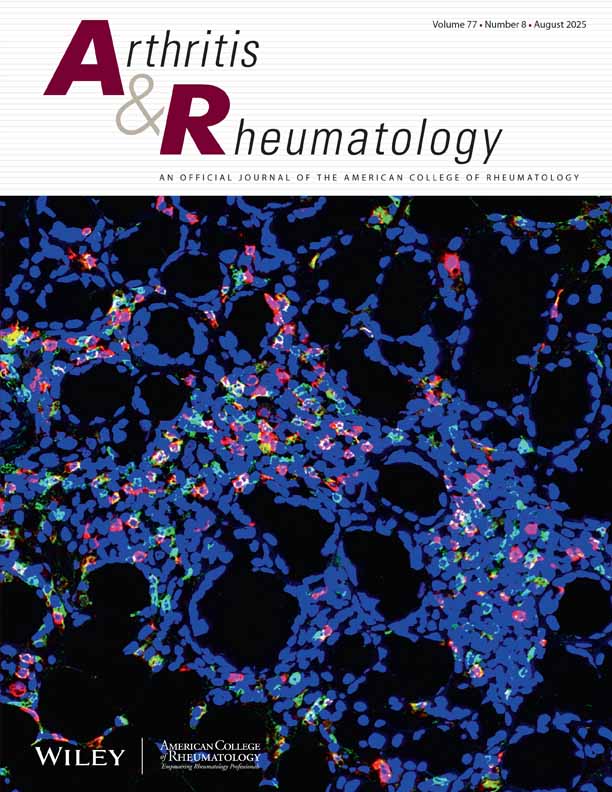Investigation of the SLC22A4 gene (associated with rheumatoid arthritis in a Japanese population) in a United Kingdom population of rheumatoid arthritis patients
Abstract
Objective
Recent studies of 2 complex diseases, rheumatoid arthritis (RA) and Crohn's disease (CD), showed associations with genes mapping to the cytokine gene cluster on 5q31. In particular, a functional single-nucleotide polymorphism (SNP) mapping to intron 1 of the organic cation transporter 1 (OCTN1; SLC22A4) gene was associated with RA in a Japanese population, and a haplotype of a different SNP in the same gene and one in an adjacent gene, OCTN2 (SLC22A5), was associated with CD. The purpose of this study was to investigate the association between the OCTN locus and RA in a Caucasian population.
Methods
Association with 11 SNPs spanning the SLC22A4 and SLC22A5 genes, including a putative RA-causing functional polymorphism (rs3792876 [slc2f2]) and a functional haplotype previously associated with CD, was investigated in 909 RA cases and 594 population controls in the UK. Genotyping was performed using 5′-allele discrimination assays. Estimated haplotype frequencies were generated using the expectation-maximization algorithm and were compared between cases and controls.
Results
All SNPs were in Hardy-Weinberg equilibrium. We found no evidence for an association between RA and either the SNP (rs3792876 [slc2f2]) or the haplotype previously reported to be associated with RA in a Japanese population. Similarly, no association between RA and the haplotype associated with CD was detected.
Conclusion
Functional polymorphisms of the OCTN gene locus that have previously been associated with RA and CD were not found to be associated with RA in a UK population. The findings do not provide support for a major role of these genes in the etiology of RA in this population.




